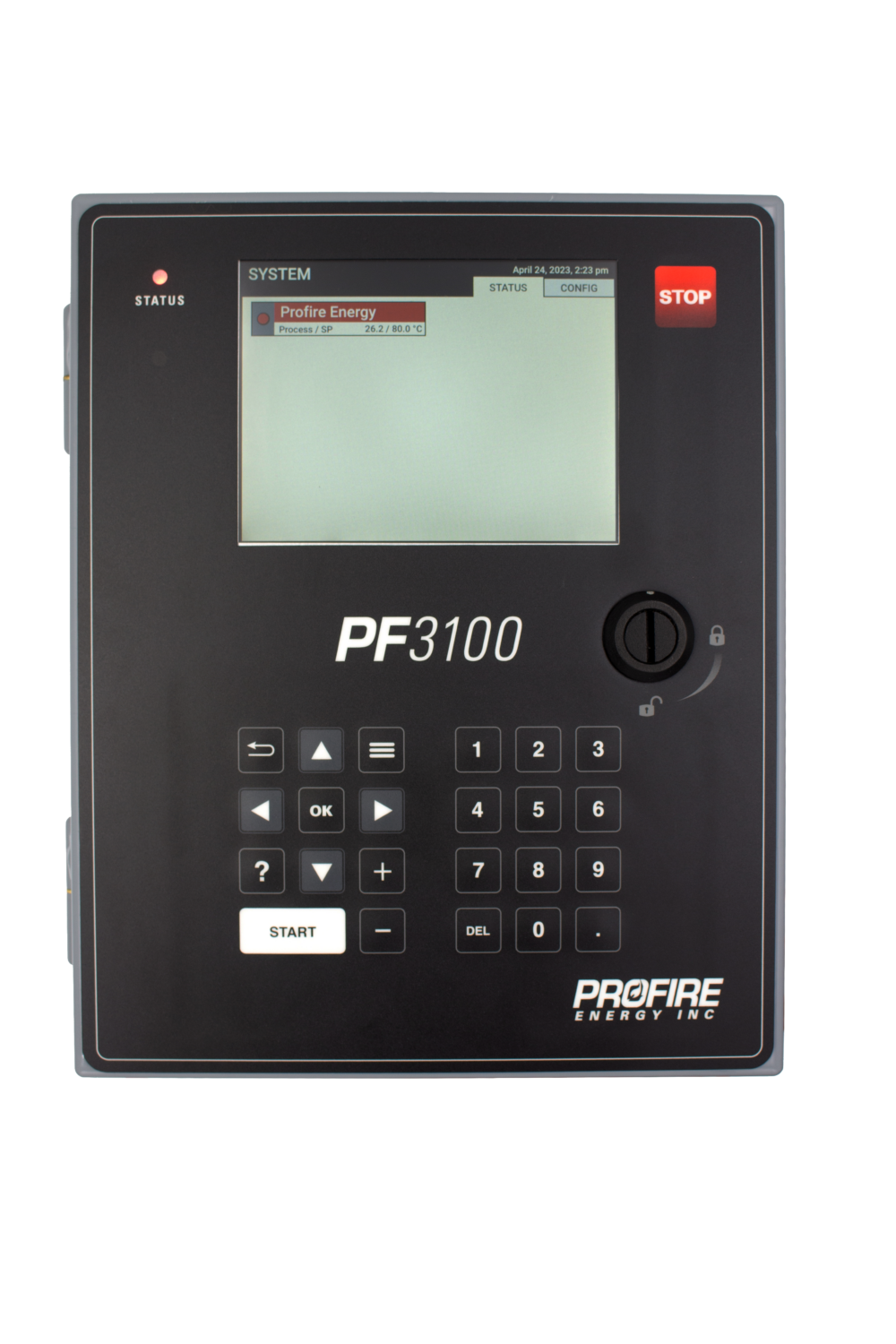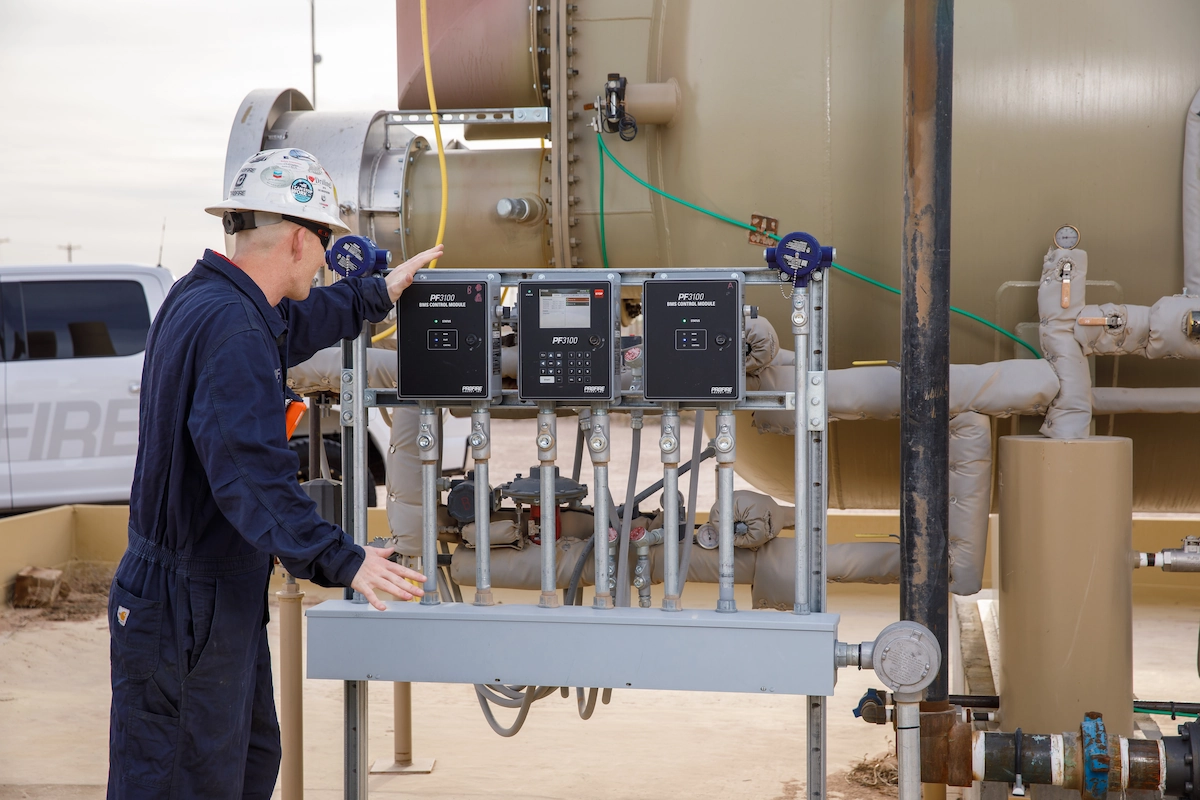Burner Management System Standards
When constructing a complete burner management system, our experts ensure all required standards for your application and location are met. There are a variety of specific standards that need to be adhered to, whether it be in relation to the burner, controllers, or fuel trains, to ensure the system is performing safely.
It’s also crucial to maintain the integrity of your system by continually upgrading and completing regular maintenance to ensure continued compliance of all required standards. Profire’s field services teams are available to complete scheduled 12-point inspections on your systems.
Let’s take a quick look at the applicable standards for industrial heating appliances.
Performance and prescriptive-based standards
Burner management standards fall into two primary categories: prescriptive and performance-based approaches.
Prescriptive-based standards define compliance criteria that outline necessary safeguards, drawing from past incidents or near misses. However, these standards provide general guidelines and do not detail specific implementation methods, affecting a broad range of heaters, furnaces, and boilers.
Performance-based standards encompass precise design criteria that are overseen by various regulatory bodies. These include the National Fire Protection Association Standard, the American Society of Mechanical Engineers Control and Safety Devices, the Canadian Standard Association, the International Electrotechnical Comission, and the International Organization for Standardization. The interpretation of these standards is upheld by the Authority Having Jurisdiction (AHJ), which includes authorized individuals at specific locations.

Applicable standards
Various standards apply to many components within a burner management system. These include:
API 538 – applies to industrial burners, in general refinery and petrochemical services. It was written by manufacturers and users of industrial boilers to supplement rather than duplicate the requirements of NFPA 85. API 538 specifies requirements and gives recommendations for the design, operation, maintenance, and troubleshooting of industrial boilers. It covers waterside control, combustion control, BMS, feedwater preparation, steam purity, emissions, etc.
API 556 – the standard addresses instrumentation, control, and protective systems for gas-fired heaters used in the refining industry. As it is specific to refinery process heaters, it is widely used by the refining industry, although local jurisdictions may also bring additional requirements. It was written by specialists covering the fields of fired equipment, instrumentation, control, and protective functions. It integrates the operating experience and incident history of major refiners to reduce the overall risk exposure to equipment and personnel. For each hazard scenario, API 556 provides recommendations on design, control system constraints/overrides, operator response to alarms, and protective functions to ensure satisfactory mitigation of the process hazard. Except for a few prescriptive “shalls”, the user may choose between solutions of different levels of sophistication and cost, which all mitigate hazards but provide different availability levels.
AS 3814 – this code outlines the minimum safety requirements for gas-fired industrial and commercial appliances in Australia. Among all codes and standards for industrial fired equipment, this standard is known for its complexity, making compliance challenging.
CSA B149.3 – specifies requirements for fuel-related components in their assembly on appliances in Canada. It applies to a wide array of applications that require gas-fired equipment.
EN 746-2 – specifies safety requirements for industrial furnaces and heating equipment, outlining hazards, safety measures, and compliance with European Directives. EN 746-2 applies to various fired equipment in industries like cement, lime, ceramic, iron and steel, glass, waste incineration, drying, refining, chemical, and petrochemical. Due to equipment diversity, applying generic requirements may be challenging or costly.
IEC 60730-2-5 – refers to construction and performance requirements for electronic devices in automatic Burner Control Systems. Adherence to this standard is often the quickest path to compliance for gas-fired appliance controls. It serves as a recognized benchmark for product design and testing. Note that compliance requirements vary by region. While following IEC 60730-2-5 aids compliance, additional requirements may apply.
ISO 13577-2 – applies to fired equipment in the same process industries as EN 746-2. This standard is global, with specific requirements for Europe, USA, and Japan in its annexes. It outlines safety requirements for people and property during commissioning, startup, operation, shutdown, maintenance, dismantling, and in case of malfunctions.
NFPA 85 – applies to gas, liquid, and solid fuel boilers with a heat release over 3.7 MW. This code addresses combustion system hazards, design, installation, operation, maintenance procedures, and training. It includes combustion and draft control equipment, safety interlocks, alarms, trips, and other controls for safe operation.
NFPA 86 – applies to thermal oxidizers, incinerators, ovens, dryers, and specialist furnaces. Excludes process heaters in the chemical and petroleum industry. Designed per API 560 and API 566.
NFPA 87 – applies to thermal and process fluid heaters. It does not apply to process heaters used in the chemical and petroleum industry and is designed in accordance with API 560 and API 556.
Adhering to regulation standards and keeping compliance is critical for your systems to run smoothly and safely. We recommend that you conduct 12-point inspections yearly, or as needed, to stay updated on any changes or updates to the burner management system standards relevant to you.
If you have questions about your process heating equipment or want to learn about the regulations applicable to your system, our BMS experts are happy to help get you the information you need.
